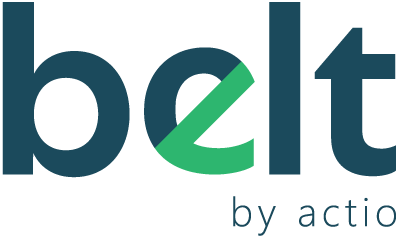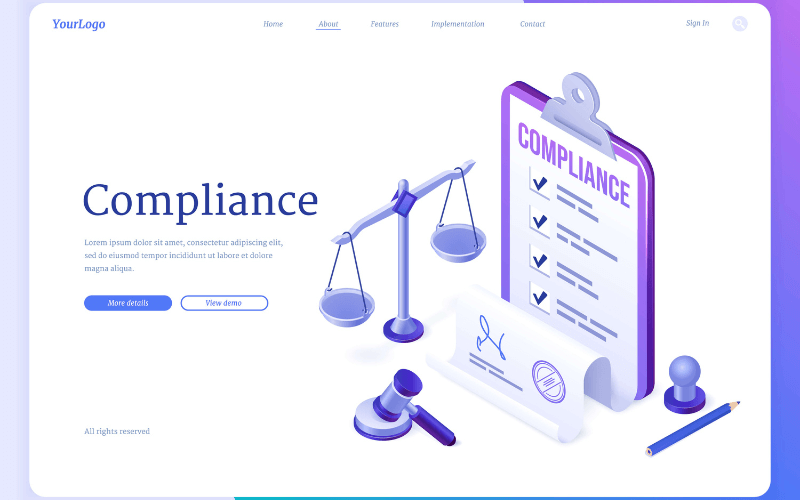In this blog post, you'll discover what Compliance really means, the top trends for 2025, and how to manage it strategically—turning risks into opportunities. Enjoy the read!
What you will find on this blog:
ToggleJust Another Buzzword?
The term compliance comes from the verb to comply, meaning to obey or conform. In business, it represents the set of practices and obligations that an organization — public, private, or nonprofit — must adopt to operate within legal and ethical frameworks. It may sound “obvious,” but turning these expectations into a structured concept helped highlight the many risks businesses often overlook until they disrupt operations.
As a formal field within companies, compliance gained strength in the 1970s in the United States. After high-profile corruption scandals like Watergate, several laws and regulations were enacted to prevent unethical corporate behaviors, including bribery of foreign officials.
Compliance Today: More Than a Legal Formality
In today's hyper-connected world, legal consequences are only part of the equation. Damage to a company’s reputation — in the eyes of clients, partners, and the public — can be equally or even more damaging.
It doesn’t matter whether a breach is caused by “a few bad apples” or mere oversight. Online audiences are quick to form opinions, often based on scattered and unreliable information. And you know the saying: first impressions matter.
That's why compliance is no longer a “bonus” or differentiator. It's essential for businesses that want to thrive and last.

Time to catch-up on the essentials of good compliance. Shall we?
Key Components of a Strong Compliance Program
A robust compliance strategy includes a range of safeguards:
- Legal compliance: Adhering to local laws and regulatory requirements.
- Prevention of corruption and fraud: Setting up strong policies against illegal conduct.
- Corporate governance: Ensuring transparent, accountable decision-making.
- Responsible company culture: Implementing clear ethical codes of conduct.
- Compliance education: Training teams to understand and apply internal policies.
- Whistleblower channels: Creating safe pathways for reporting misconduct.
- Monitoring and audits: Regularly reviewing processes and controls.
- Risk management: Identifying and mitigating legal, operational, and reputational risks.
Risk management: What it is, how to do it, and steps
All these actions fall under risk management — a system of good practices that both prevents crises and helps address them strategically.
Belt: Turning Challenges into Competitive Strategy
Now imagine a tool that brings all these compliance elements together in one intuitive platform — powered by smart analytics and tailored risk-mitigation plans. That’s exactly what Actio delivers with Belt.
This is one of our most essential services for companies ready to take compliance to the next level. We’ve been helping organizations to improve their results and routines through Belt.
And if you already use our Tune software, you gain even more: full integration with Belt on the same strategic dashboard.
With Belt, your company can identify vulnerabilities early and take data-driven action. In 2025, with compliance trends evolving fast, this kind of tool offers a clear competitive edge.
What’s New in 2025? Compliance + AI

Artificial intelligence is revolutionizing the compliance process. Tools like Belt, equipped with machine learning, evolve through past data and improve verification procedures, ensuring your practices stay in line with current regulations. Our automated and integrated system cross-checks data across departments like Legal, Finance, and HR, flagging inconsistencies that would otherwise go unnoticed.
And that’s not all: new developments in compensation compliance are reshaping HR practices — aligning salary, bonuses, and benefits with labor laws, internal policies, and collective agreements, to also align with de company’s culture. It’s another opportunity to reduce risk and gain competitive advantage.
Would you like to learn more about Compensation Compliance? Let us know in the comments!
Let’s Recap: What You Know Now:
1. What is it?
A set of practices ensuring a company operates within legal and ethical standards.
2. Why is it important?
It protects against legal risks, defends your reputation, and positions your business competitively.
3. How can it support your company?
By centralizing key tasks, offering insights, and integrating seamlessly with your strategic tools.
How does Belt enhance your compliance?
Through internal training, audits, monitoring, and proactive risk management.

So, what now? Are you exploring ways to upgrade your compliance strategy? Tell us in the comments as well, let's talk!
Follow Actio on LinkedIn, Instagram, and Facebook for expert content and news about our products.






